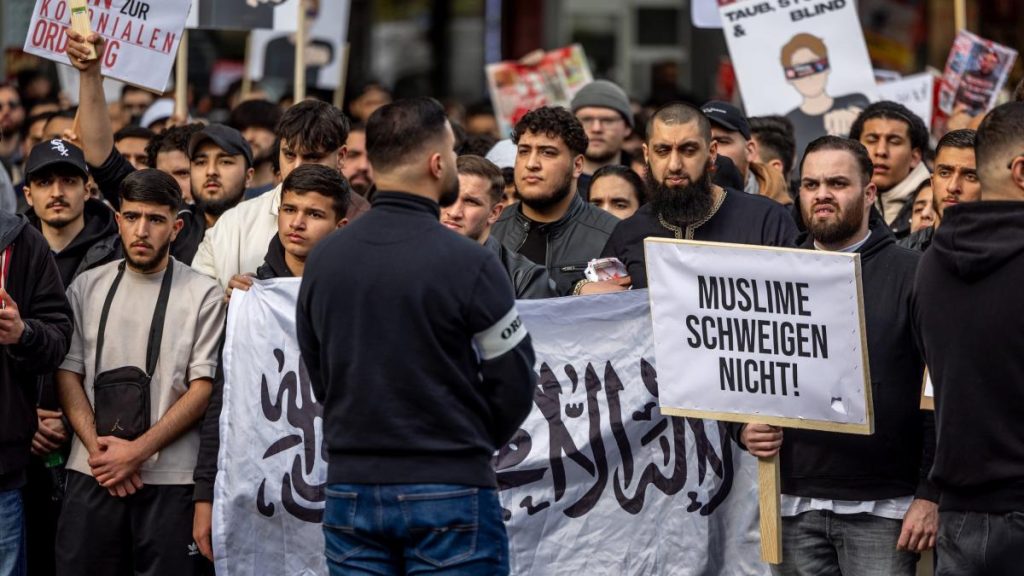More than 1000 Islamists gathered in Hamburg for a demonstration organized by the group “Muslim Interactive”. The participants demanded an end to the “dictatorship of values” and expressed their rejection of Germany and support for Israel. Demonstrators carried signs with slogans like “Caliphate is the solution” and “Stop the dictatorship of values.” They also chanted “Allahu Akbar” in response to speakers on stage. The demonstration was led by Joe Adade Boateng, an Islamic influencer, and the group is ideologically aligned with Hizb ut-Tahrir, aiming to establish a caliphate based on Sharia law.
Boateng and “Muslim Interactive” target young Muslims in Germany, addressing everyday issues like discrimination and presenting the supposed simple solution of choosing between being German or Muslim, Quran or Constitution. The group’s leader, Boateng, who goes by Raheem Boateng, is a 25-year-old studying education at the University of Hamburg but is known as an Islamic influencer on Instagram and TikTok. They also mobilize their followers, particularly in light of the Gaza conflict, accusing the German government of contributing to civilian deaths in Gaza by supporting Israel.
The demonstration also criticized mainstream media outlets for their coverage of the conflict, accusing them of being blind and deaf to the situation. The group’s representatives called for a demonstration against “media Islamophobia” on their Instagram channel. Despite being labeled as a banned extremist organization by the Hamburg State Office for the Protection of the Constitution, “Muslim Interactive” has organized several demonstrations, including one in St. Georg in October and another against a Quran burning in Sweden in February that attracted 3500 participants.
The demonstration in Hamburg was heavily guarded by police, with no reported incidents. The police estimated the number of participants at 1100. This is not the first time Islamists have gathered for demonstrations in Germany, as seen in a previous incident in Essen that sparked a national debate on whether anti-state and anti-democracy sentiments are being given too much space. Authorities continue to monitor such gatherings closely to ensure public safety and prevent any potential threats posed by extremist groups.
The influence of extremist groups like “Muslim Interactive” and their ability to mobilize large crowds for demonstrations raises concerns about radicalization and the spread of extremist ideologies within Germany. The use of social media platforms to recruit and spread propaganda further complicates efforts to counter these narratives. Authorities must remain vigilant in monitoring and addressing the activities of such groups to prevent any potential threats to public safety and uphold democratic values in the country. The growing presence of Islamist influencers like Boateng highlights the need for a comprehensive approach to counter extremist messaging and promote social cohesion and integration in society.


